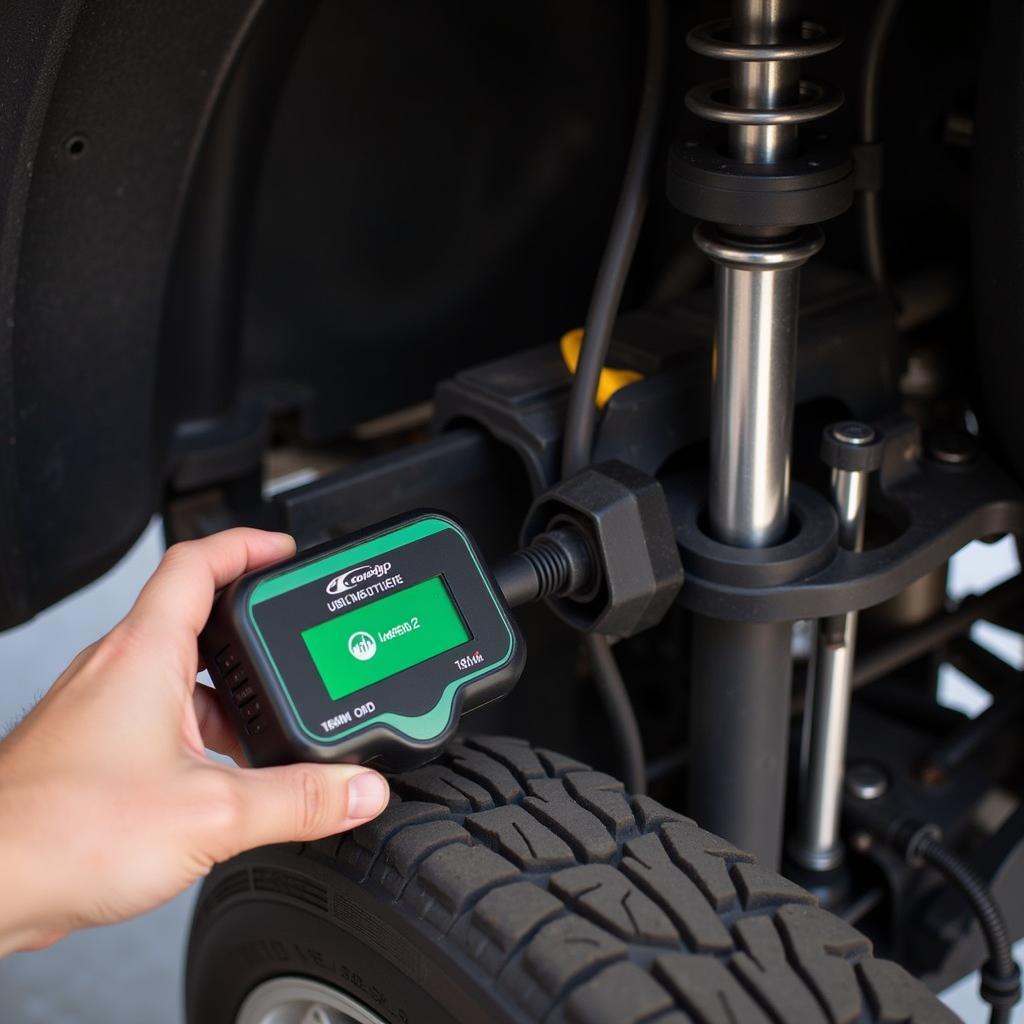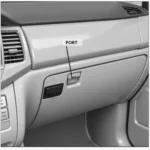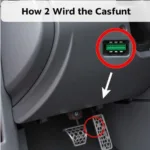While most car owners know that an OBD2 scanner is a powerful tool for diagnosing engine problems, many are surprised to learn that its capabilities can extend beyond the engine bay. But can an OBD2 scanner actually diagnose issues with your car’s suspension? The answer, unfortunately, is not a simple yes or no.
Understanding OBD2 and Suspension Systems
OBD2 scanners work by reading data from your car’s onboard computer, which monitors various systems and sensors. This data is translated into diagnostic trouble codes (DTCs) that pinpoint areas of concern. Your car’s suspension, however, is primarily a mechanical system. This means it doesn’t always communicate directly with the OBD2 system in the same way that engine or transmission components do.
When an OBD2 Scanner Can Help with Suspension Diagnosis
There are certain situations where an OBD2 scanner can indirectly point towards a suspension problem. For example:
-
ABS and Stability Control Issues: If your vehicle’s anti-lock braking system (ABS) or electronic stability control (ESC) is malfunctioning, it can often trigger a DTC that an OBD2 scanner can read. Since these systems rely on sensors that can be affected by suspension problems (like a faulty wheel speed sensor caused by a damaged suspension component), this information can be a clue.
-
Ride Height Sensors (Air Suspension): Vehicles equipped with air suspension systems have ride height sensors that communicate with the onboard computer. An OBD2 scanner can often read data from these sensors, potentially indicating a suspension problem.
- Steering Angle Sensors: Modern cars use steering angle sensors for various safety and driver-assist features. Problems with these sensors, which can sometimes be related to suspension issues, may trigger a DTC readable by an OBD2 scanner.
When an OBD2 Scanner Can’t Help
In many cases, a traditional OBD2 scanner won’t directly diagnose problems like worn shocks, damaged springs, or loose suspension components. These issues often require a visual inspection by a mechanic and may involve physically testing the suspension components.
Beyond Basic OBD2: Advanced Diagnostics
It’s important to note that advanced OBD2 scanners or professional-grade diagnostic tools, especially those specifically designed for certain car makes and models, may offer more in-depth suspension diagnostics. These tools can access data from a wider range of sensors and modules, potentially providing more specific information about suspension components.
The Bottom Line
While an OBD2 scanner can be incredibly helpful for diagnosing a variety of car problems, it’s not a magic bullet for all suspension issues. It can, however, provide valuable clues and point you in the right direction.
If you suspect a suspension problem, the best course of action is to:
- Use an OBD2 scanner to check for any related DTCs.
- Pay close attention to your car’s handling for any unusual noises, vibrations, or pulling.
- Consult a qualified mechanic for a thorough inspection and diagnosis.
Remember, a well-maintained suspension is crucial for safety, handling, and overall ride comfort.
FAQs
Q: Can I use any OBD2 scanner for suspension diagnostics?
A: While any basic OBD2 scanner can read engine codes, a more advanced scanner or one specifically designed for your car’s make and model may provide more detailed suspension-related information.
Q: My OBD2 scanner isn’t showing any codes, but I think I have a suspension problem. What should I do?
A: A lack of codes doesn’t necessarily rule out a suspension issue. Many suspension problems are mechanical and won’t trigger a DTC. Consult a mechanic for a proper diagnosis.
Q: Can I fix suspension problems myself?
A: While some minor suspension repairs may be possible for experienced DIYers, it’s generally recommended to have suspension work done by a qualified mechanic. Suspension repairs often require specialized tools and knowledge.
Need More Help?
Have more questions about your car’s suspension or need help diagnosing a problem? Contact our team of automotive experts via WhatsApp at +1(641)206-8880 or email us at [email protected]. We’re available 24/7 to assist you. You can also find more helpful articles and information on our website, such as our OBD2 fault code list pdf and specific car model code lists, like this one for the 2003 Cadillac CTS.


